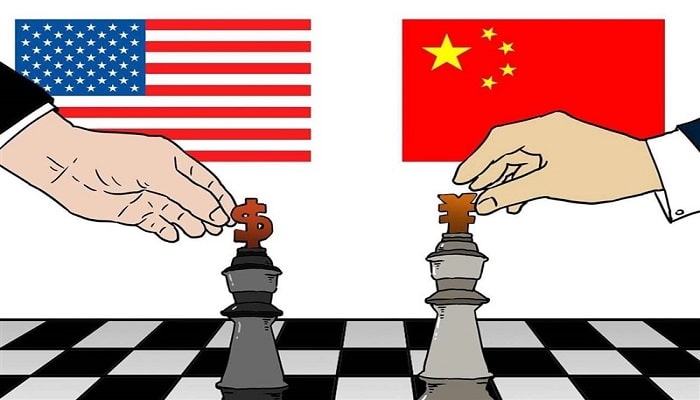PNN – The new trade war between the US and China will have wide-ranging effects on the global economy and may lead to major changes in supply chains and capital flows to other countries.
According to the report of Pakistan News Network, Just a few weeks before the full transfer of power in Washington to Trump and in the past days, the Biden administration, which is preparing for the transfer of power, took measures to limit the export of semiconductor technology to China, and China immediately responded to these measures.
China announced on December 3 that it has banned the export of several key minerals such as germanium, gallium, etc. with military and technological applications to the United States. The move comes in response to Biden’s new restrictions on the export of advanced technology and chips to China, part of an effort to crack down on China’s semiconductor industry.
On the other hand, Trump announced last Wednesday that he has appointed Peter Navarro as his top adviser on trade and manufacturing issues. During Trump’s first term, Navarro was one of his main advisers on launching a trade war with China and is known for his tough policies.
According to Trump, Navarro is tasked with promoting the trade and tariff policies of the new administration and using his experience and skills for this purpose.
Read more:
One of the issues raised in America is the cancellation of China’s “perfectly favorable” trade status in the field of American foreign policy, which has greatly contributed to the country’s economic growth in the past three decades.
An article on the website of the US Department of State shows that this action will have tangible economic effects not only for China, but also for the US. According to modeling by the Peterson Institute for International Economics, this shift will reduce China’s GDP by 0.6 percent and the U.S. by 0.1 percent by 2025. Also, this action can lead to an increase in inflation in America.
On the other hand, since the first term of Trump’s presidency, China has enacted comprehensive laws that allow it to react to the actions of other countries. These laws include blacklisting foreign companies, imposing sanctions and cutting off US access to key supply chains.
Challenges of multinational companies in exiting China
Despite the efforts of multinational companies to transfer their production to other countries, especially Southeast Asian countries, China still plays an irreplaceable role due to its industrial and technological infrastructure; so large companies like Foxconn, which are Apple suppliers, still have a strong dependence on Chinese labor and facilities.
Which countries will be the possible winners and losers of the trade war?
According to experts, due to direct conflict in this tension, America and China will face a decrease in economic growth, increase in inflation and disruption in the supply chains of raw materials and final products of these chains, and both sides will pay a heavy price for this effort. On the other hand, the European Union and European companies will not be spared from suffering the damages caused by this trade war due to their dependence on China’s supply chains and the strict laws of the United States.
On the other hand, Southeast Asian countries, especially Vietnam and Thailand, which can benefit from the opportunity to relocate production and new investments due to the restrictions imposed on Chinese industries; And also India, as a country with a high population, can strengthen its position in global supply chains by strengthening domestic production, especially in advanced industries.

